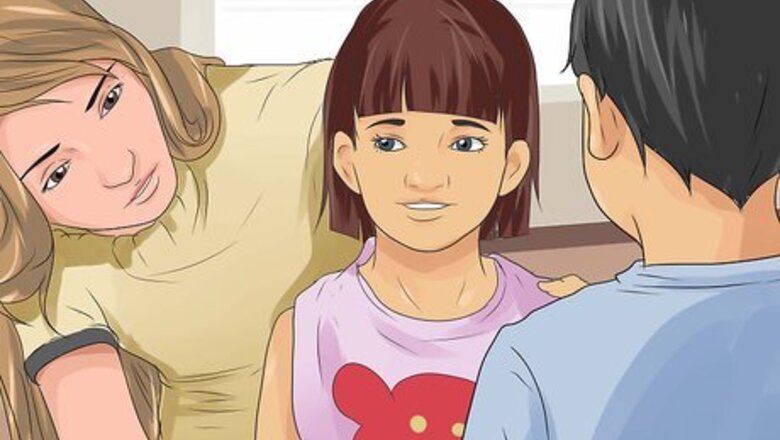
views
Teaching Children about Social Skills
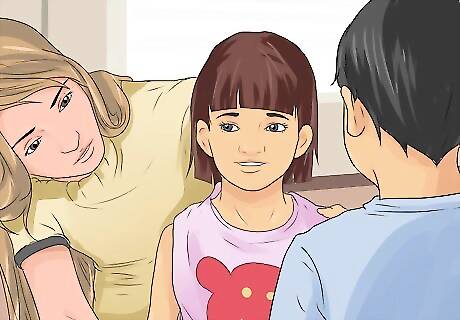
Watch for opportunities to teach empathy. Empathy is one of the most important skills for a child to build. Empathy marks social maturity as it requires putting oneself in another person's shoes, which is often a difficult thing for a young child to do. Throughout your day-to-day life, look for opportunities to teach your child about empathy. Encourage your child to consider things from another person's perspective. When something happens, ask your child how he or she would feel about that. For example, say you see a man miss the bus on his way to work. Say to your child, "That man missed the bus. How do you think he feels? How would you feel if that happened to you?" You can also ask your child to put him or herself in a character's shoes while watching television, movies, or while reading. Encourage him or her to stop and think how a character feels. If a character is behaving in a negative way, ask your child why a person may behave poorly.
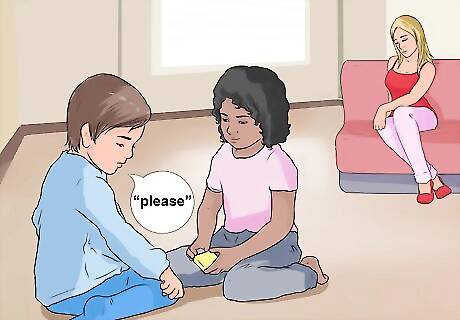
Teach basic manners. Basic manners are important to social maturity. As your child grows up, teach him or her manners. Speak to them respectfully and politely to model good behavior. What manners a child should learn varies by age. For young children, between 2 and 3, encourage them to greet others by saying "Hi." When leaving, tell them to say "Bye." Also, encourage eye contact and smiling when appropriate. Children between the ages of 3 and 4 should be able to take turns during games and start initiating conversation with others. Between the ages of 4 and 5, children should be able to express needs by saying things like "Stop!" or "No!" Between the ages of 5 and 6, you can teach your kids to say "Please" and "Thank you" and discourage them from using foul language.

Teach social skills with games. Children can often use social skills via playing. You can teach kids about manners, cooperation, and other vital life skills by allowing them to learn via play. Teach kids how to take turns by playing simple games that require turn-taking. You can also play games with simple instructions, or games that require teamwork. Teach children to share. Encourage your kids to share with other children during games. If you have multiple kids, require them to share certain toys during play. Fantasy play can also help, especially for children between 4 and 5. Kids of this age may benefit from pretending to be someone older or taking on the imaginary role of a mother or a father.
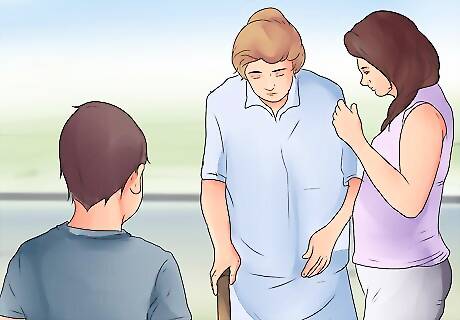
Model good social behavior. Your children learn a lot from watching you. You can teach children how to mature socially by modeling good behavior for them. When you're taking your kids with you during daily activities, strive to be on your best behavior. Say "Please" and "Thank you" to cashiers, other parents, and teachers. Make small talk with people you know, showing your children how to hold a conversation. If you slip up in front of your child and snap at another person, offer a genuine apology. This can teach children it's okay to screw up occasionally, but apologizing for your mistakes is important.
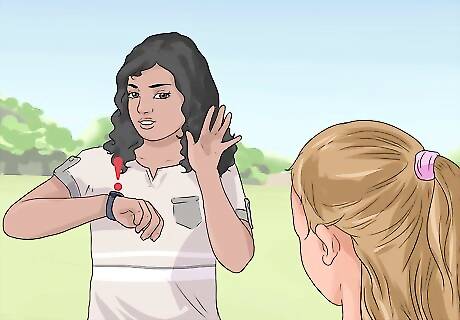
Talk to your kids about personal space. Very young children especially may struggle to understand personal space. Tell your kids everyone has a personal space bubble that needs to be respected. Discourage children from hugging, kissing, or physically touching another person without asking first. Make sure your children respect boundaries during playtime. Discourage hitting, kicking, or other aggressive ways to show frustration. You should also teach children they have a right to their own personal space. It's okay to refuse hugs, for example, and to speak up if another child or adult is making them uncomfortable. Encourage children to let people know when their personal space is violated.
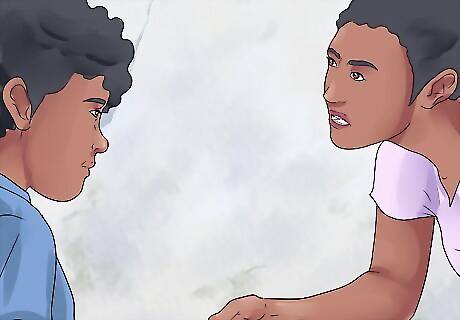
Teach children to express themselves effectively. Self-expression can be difficult for young children. In early childhood, children cry or act out as a means of expression. Try to catch negative means of self-expression when they happen. Encourage your child to express what he or she is feeling in healthy and straight forward manner. If your child angrily snatches a toy out of his older brother's hand, tell him he should not have done that. Instead, encourage him to say something like, "Can I have a turn now?" If a child is crying or throwing a tantrum, work on calming the child down. Once your child is relaxed, have him or her calmly explain what's wrong. Tell your child, in the future, if something is wrong he or she can tell you instead of having a fit.
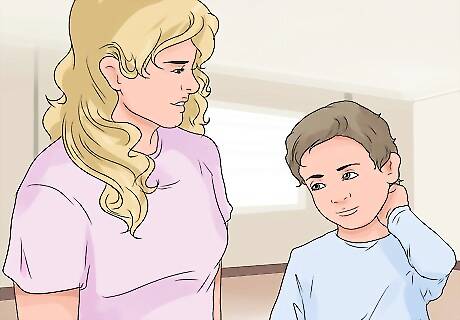
Have children pay attention to tone. Children often fail to recognize how their tone sounds to others. An important part of social development is teaching children how to speak in an appropriate manner for a given situation. Use a tape recorder and record yourself speaking with different emotions. Play this back to your children and have them guess the emotions. This can help children see how their tone affects interactions with others. You can also have children pay attention to tone while watching television. Encourage them to pay attention to how a character sounds when angry, sad, happy, and so on.
Encouraging Activities that Promote Social Maturation
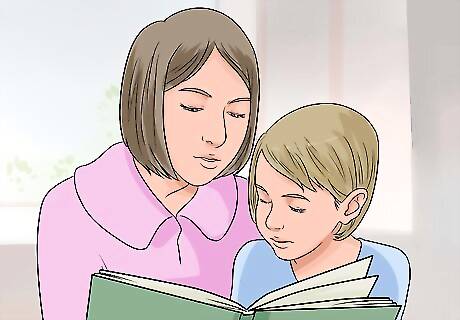
Read literary fiction to children. Reading can help with social maturity in a lot of ways. Reading literary fiction to children can help them learn empathy. This can lead to kinder interactions with other people. Make a point of reading to your children every night. Incorporate a bedtime story into your nighttime routine. You should strive for high quality fiction with original characters. Stories full of cliches may not have as big an impact on empathetic thinking. Go for classic children's books that have received good reviews.
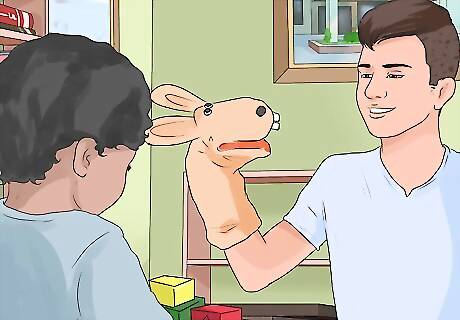
Host play dates. Supporting your child's friendships is one of the best things you can do to help your child mature socially. A solid friends group will help your child learn boundaries, manners, and empathy. As your child starts making friends in school, branch out to other parents. Offer to host play dates and sleepovers so your child has a chance to solidify friendships made in school outside the classroom. If your child is shy, one-on-one playdates may work best. It can also be helpful to schedule playdates with a particularly outgoing child, as this child can model good social behavior for your child. If your child has an issue with one of his friends, encourage him or her to apologize. You want to teach your kid how to repair rifts in friendships. Learning to apologize is a big aspect of social maturation.

Encourage participation in team sports. Studies indicate participating in physical activity, especially in the form of team sports, can help social maturation. Children who engage in team sports learn skills like leadership and empathy. Down the road, they'll be better equipped to handle social situations. Encourage your child to sign up for an after school sports league in his or her school. You can also enroll your child in a local little league team. Not all children will take well to team sports. If your child truly hates being involved in such activities, try not to push him or her. While sports can certainly help with socialization, they are only one of many routes to help a child mature socially.
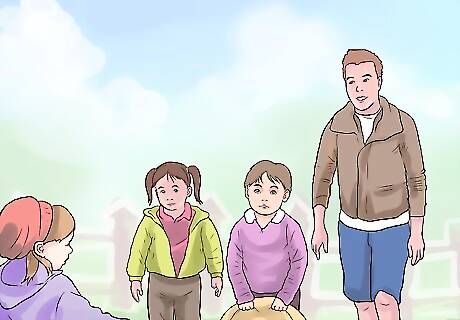
Get children involved in extracurriculars. If your child does not take to team sports, other extracurricular activities can help him or her make new friends. This can help a child adjust socially. Try to get your child involved in an extracurricular activity he or she would enjoy. If your child loves art, for example, sign him or her up for art classes. If your child is captivated by science, see if there are any after school clubs that teach kids about science.
Seeking Outside Support
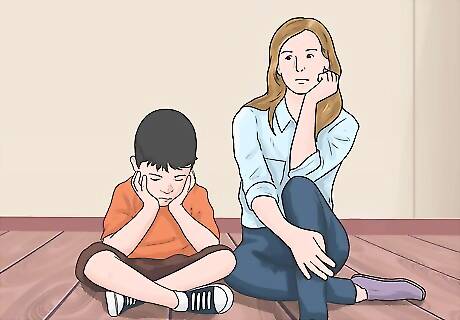
Watch for signs of social delays. If you're pushing your child to mature and it does not seem to be working, your child may be delayed socially. Social delays can be a sign of disabilities such as autism. Children with social delays may avoid eye contact. They may dislike being touched or hugged. They may not respond to questions about how they are feeling or what they are doing. If your child is socially delayed, they may struggle with even basic self-expression. A socially delayed child may not express feelings like hunger or pain. Socially delayed children may not be able to follow directions. They also may not engage in make believe play, like pretending a banana is a phone, like other children do. Instead, they may be content with lining up objects, with their imaginative tasks taking place only in their head.

See a pediatrician. If you suspect your child has a social delay, talk to a pediatrician. A qualified pediatrician can help identify socially delayed children. He or she may be able to recommend a therapist or a treatment program. If your child is under 3 and you're in the US, you may be qualified for a program called Early Intervention. This program can help get you in touch with psychiatrists and therapists to help treat your child's delay.

Enlist the help of educators. If your child is struggling socially, talk to his or her teachers. There may be something teachers can do to help your child adjust in class. If your child is very shy, a teacher may be able to give him or her special attention. If you do find your child has a disability such as autism, it's important to notify educators. Your child's teacher should know how to best help them get through school.

See a therapist, if necessary. If your child is not developing socially, make an appointment with a child psychologist. If your child has a disability, the sooner you get your child diagnosed the better. A qualified therapist can recommend treatment to get your child back on track to solid social development. You can find a therapist by asking your regular doctor for a referral. You can also find a therapist online, or through your insurance provider.




















Comments
0 comment